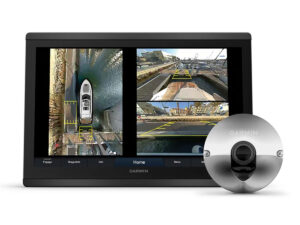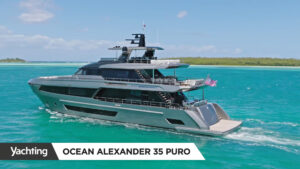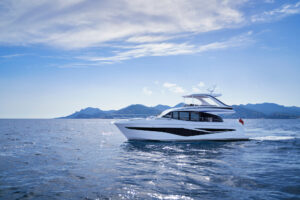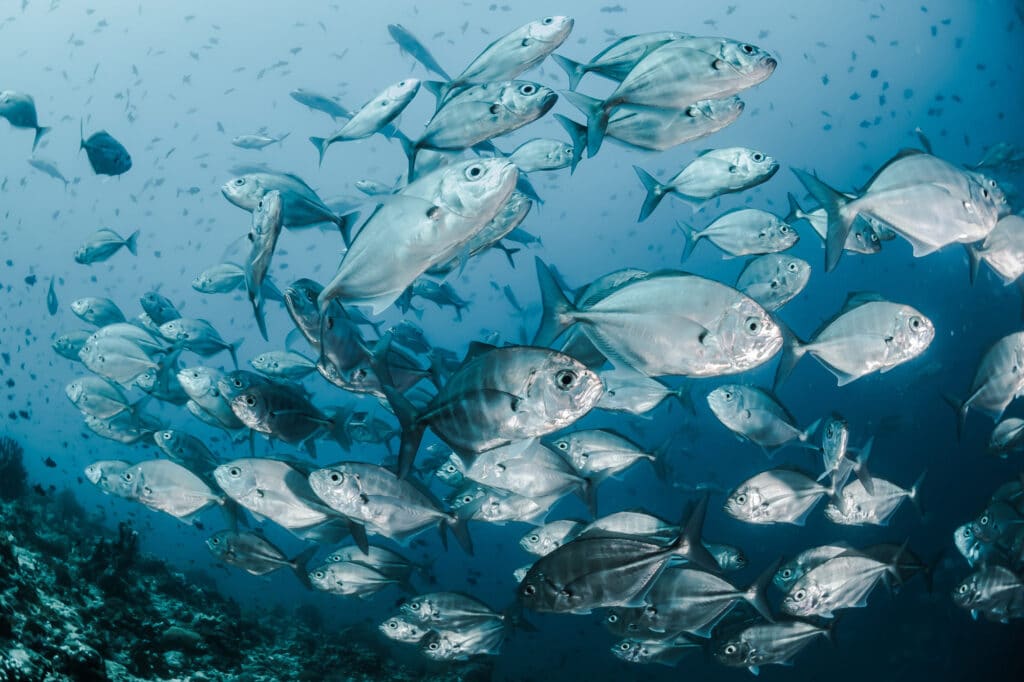
As a brand with its heart on the sea, Princess Yachts feels strongly about reducing the harmful impact to our oceans and wildlife when manufacturing our products, by ensuring sustainable processes remain at the core of the business. Princess is on a sustainability journey, starting with making significant changes to our industrial processes such as the installation of a Biomass heating system to utilise timber waste; a new agreement to install solar panels at the Newport Street Plymouth facility and a commitment to significantly reduce waste across the business through greater use of recycling.
Our products too are part of a continuous process to improve efficiencies and sustainability. Our latest hull designs are up to 20% more efficient for example: we use resin infusion for our hulls; we have also recently launched a number of sustainable fabrics and materials for our yacht interiors and; are committed to continuous research and development of sustainable alternatives to as many of our materials and finishes as is currently possible.
In 2016, Princess became the first luxury yacht manufacturer to officially partner with the Marine Conservation Society. We’ve worked together to support marine environments, preserve reefs and sea life, with the company becoming the custodian of the Eddystone Reef, an offshore ecosystem outside of Plymouth.
In 2018, MCS worked to replace traditional ‘swing’ moorings for recreational vessels with ‘Advanced Mooring Systems’. Advanced Moorings ‘raise up’ the gear from the seabed, reducing erosion of seagrass. MCS started with 5 volunteers in 2018 – undertaking meetings with local authorities, and eventually sub-contracting a commercial dive company to ‘screw in’ piles into the seabed, that firmly hold the riser chain. Since the original 5 were installed in May 2019, the MCS have successfully installed a further 10 moorings with support from Princess.
Since the start of 2022 the Marine Conservation Society & Princess Yachts have embarked on an exciting new project – PLYMFISH – which aims to identify the fish species present in the Plymouth Sound and gain a better understanding of how different habitats influence fish and other species.
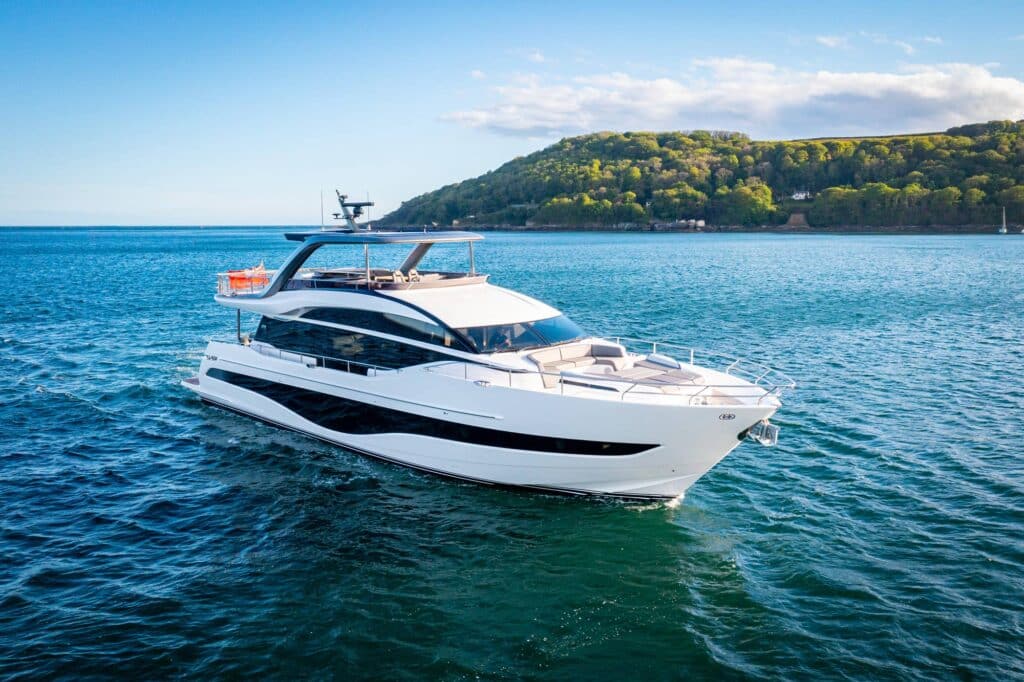
Hull Efficiency
Princess Yachts’ boats and components are made in Plymouth, including the hull and superstructure of the boat using the most efficient modern method of resin infusion, thus producing significantly less wastage. Components are all built inhouse, such as electrical wiring looms and furniture. This allows the business to take control over production supply and ensures the highest design, materials, craftmanship and build quality.
Recent advances in computational fluid dynamics (CFD) simulations have played an increasingly important role in hull development. Princess “parameterise” the hull – meaning that if one parameter is changed (ie length, width, height or volume) the 3D computer model is able to proportionally change all other parameters. This allows a complete exploration of the design space to determine which precise combination of parameters results in the most efficient hull form for any particular application and operating profile.
The shipyard also closely look at all of the hull appendages and machinery to ensure that every component is working as efficiently as possible. This includes, for example, careful investigation of the fin stabiliser location and neutral angle at every speed to best complement the hull efficiency, or working with suppliers to optimise prop size and gear ratio.
The net result of this detailed approach to eliminating energy loss is that the sum of multiple small gains results in an appreciable improvement that ultimately results in reduced fuel consumption, CO2 and particulate emissions over the yacht’s lifetime.
Biomass Project
For any business, the generation of power comes with a significant cost both financially and in terms of environmental impact. Princess Yachts’ South Yard site has historically needed around 500,000 litres of gas oil and 97,000 litres of kerosene a year for heating purposes. Since installing a biomass boiler in 2020, the business has been collecting waste wood from across all sites which are then chipped and used as fuel. Princess produces more than 1,400 tonnes of waste wood a year – instead of paying for it to be picked up and disposed of, the biomass project uses it to offset their fossil fuel consumption.
The project has seen Carbon savings of around 1,500 tonnes a year by using wood instead of fossil fuels – the equivalent to switching 500 homes to a renewable heating source. In addition to the reduction in CO2, the project also delivers a cost saving, initially estimated to save up to £200,000 per annum, but current high fuel costs mean this saving will increase significantly.
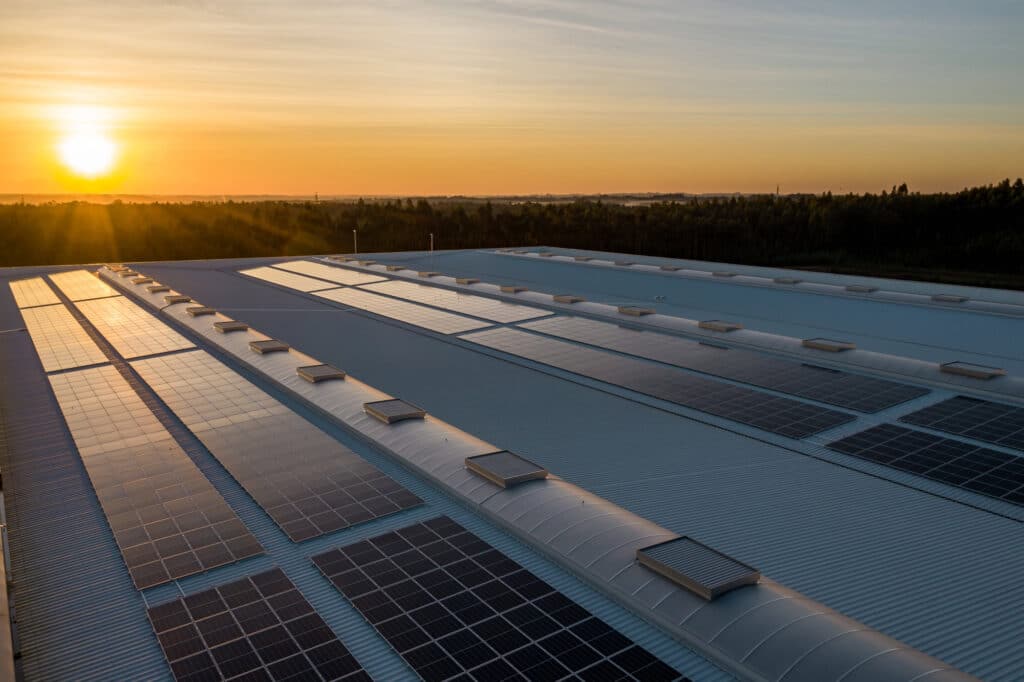
Solar Panels
Princess Yachts have recently concluded contracting of an energy decarbonisation scheme in the form of the deployment of a Solar PV installation at two of the company’s manufacturing locations; Newport Street and Coypool, both based in Plymouth.
The combined installations will provide installed capacity of an estimated annual 2,700,000 kwh worth of electricity which should generate sufficient output to satisfy approximately 15% of our annual electricity demand. In addition, Princess will reduce CO2 emissions of around 700 tonnes.

